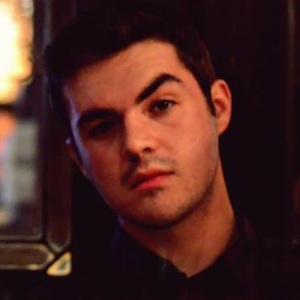
Young photographer Jonah McGowan, based out of London and Chicago, works with both analog and digital cameras to create fine art photography and commercial imagery. He has seen his work featured in magazines and promotional material.
He talked with Variance recently about his inspiration, his thoughts on Instagram and his idea of a perfect photograph.
How did you first get started in photography?
I've always loved taking pictures and making things. When I was younger, I tried my hand at drawing and painting, but I wasn't great at either because I was so impatient. When I found out that all I needed to do with a camera was press a button, that was it for me. I started saving up for cameras and putting effort into ideas, and then my love for it just grew. I got really into it when I felt the urge to record what was going on in my life in some form or another. I have diaries, notebooks, etc., but nothing records a moment like a good photograph.
What do you think is one of the most common misconceptions about being a photographer?
That it's easy. Like I said before, it's pressing a button and that's part of its beauty—it's so simple that anyone who wants to can do it. But actually being a good photographer requires technical skill and an awesome eye. You have to know your shutter speeds and your apertures inside out, and your subject matter should have a cohesive theme. I think it's a often a common misconception that we just "get lucky" with shots. Of course, this is sometimes the case, but a lot of careful planning goes into a lot of the work.
Since you shoot various subjects, do you have a favorite(s)?
Not really. I love shooting both people and landscapes; the two are very different. When I shoot people, I try and talk to them casually at the same time and be very lighthearted to make them feel comfortable, because I don't normally use professional models, only close friends. Shooting landscapes is nice because typically nobody is around and it's an experience you have by yourself. For me personally, I would liken the two to hanging out with friends and having alone time. I enjoy and need both.
How do you know when you have the perfect shot?
Sometimes I can just see it. I think everyone has that moment where they just look at a photograph and instantly love it and if that happens with me, I'm over the moon. The thing is, I actually shoot film more than digital, so I can think I have the perfect shot at the time but then when I develop the film it can turn out terribly. You never know, and it's that unpredictability that you sometimes hate, when you thought a shot would come out well and it didn't, or you love when something you never expected to turns out looking really cool.
Many photographers talk about the great amount of time that goes into editing. What has been your experience?
I try and edit as little as possible. My philosophy with photography is very natural and authentic. I try and use film in order to physically create negatives that are actually tangible and then I develop the pictures. I rarely do any editing. Sometimes I'll boost or fade color a tiny amount, but I have never airbrushed anything or done anything like that. These photographs are captured moments and I feel like if I edit them too much, it takes away from their realness and they are also less relatable.
Given the popularity of apps like Instagram, even children are using smartphone cameras and stock filters to showcase their "photographic" skills. How do you see it?
Instagram is great and lots of fun, and smartphone cameras these days are amazing (the iPhone 5 camera—wow). These apps are going to give kids a chance to have fun and try their hand at using cameras. Those who have a hidden passion for it will discover it earlier and I'm sure those who want to will grow and develop their talents. Some of the photographs on apps like Instagram are stunning, and I think accessibility can really only be a good thing. However, having said that, I do have a real soft spot for the old, analog way of doing things and I would prefer to buy a Holga or a Lomo or whatever camera inspired those filters and do it for real. Digital is convenient, but analog is real.
Check out Jonah McGowan's Page on Facebook here.
Could not load widget with the id 310.


